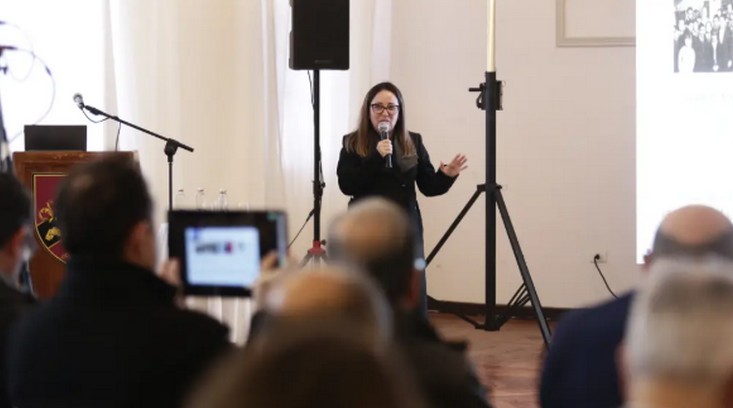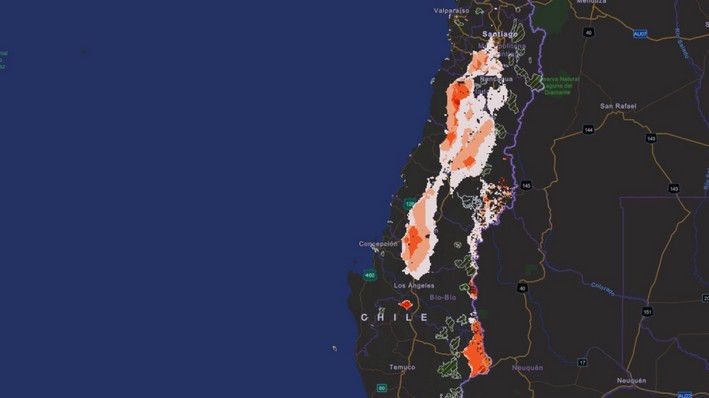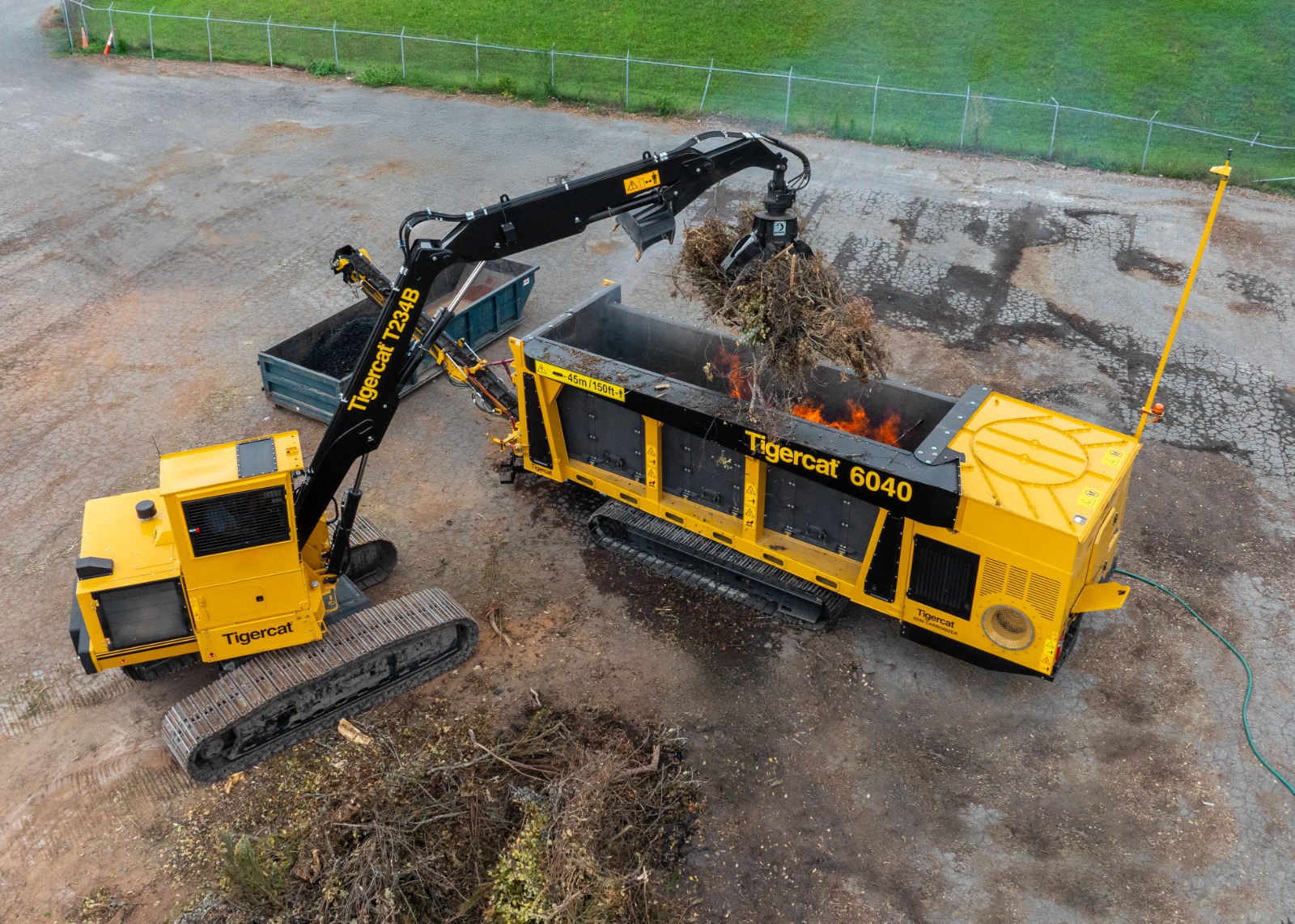The presentation by Sandra Gacitúa, director of the Forest Institute (INFOR), opened the second meeting of the Biobío 2050 Cycle, "The Future of Forestry." It was an opportunity to delve into the work of this public technological institute, which plays a key role in sectoral preparation for sustainable development, considering all variables involved in this concept.
The professional emphasized that forests are sources of fiber, fuel, and food, providing livelihoods for millions of people. Additionally, they help mitigate climate change and improve soil, air, and water quality.
This condition connects with the importance of promoting wood construction, considering global housing trends. While 55% of the world's population lived in urban areas in 2023, by 2050, this percentage will rise to 70%, leading to increased carbon dioxide (CO2) emissions that intensify the greenhouse effect.
"A solution to address the housing deficit lies in nature: building with wood, the method that generates the least carbon emissions. Moreover, forests capture CO2, so constructing with wood does not emit carbon, making it a strategy that will help us meet our international carbon neutrality commitments," she argued.
Sustainable Forestry and Timber Model
On this matter, she called for managing forest plantations at a landscape scale—meaning smaller, diverse, and heterogeneous mosaics—managing watersheds, establishing biological corridors, and respecting communities.
"Forest development must continue strengthening sustainability through nature-based solutions and cost-efficient technologies, alongside territorial social innovations. This requires an agreement among private sector actors, academia, civil society, and the state to promote sustainable sectoral development," she stressed.
She also stated that "native forests and sustainable, multifunctional, and climate-resilient forest plantations require science and, therefore, more research."
In this regard—taking advantage of the diverse backgrounds of attendees—she described collaboration between the Forest Institute, universities, and the private sector as "essential." "The forestry and timber sector is strategic for climate change mitigation and Chile's development," she emphasized.
The Role of the Forest Institute
Dr. Gacitúa elaborated on the role of the institute, which operates under the Ministry of Agriculture and recently celebrated its 64th anniversary.
"Our mission is to drive sustainable value creation across the entire chain. We cover everything from seed collection, plant production, soil management, maintaining plantations with an ecosystem perspective, processing wood, and finally quantifying the effects of the entire forestry process. Therefore, it's not just about forests," she stated.
The director added that a long-term vision is necessary to contribute to effective public policies, centered on public-private interaction. "What drives us are people, who are at the heart of our research.
How do we do this? Through applied research and technology transfer, because we want our knowledge to go beyond libraries or articles."
In this context, she noted that generating strategic information for decision-makers is a fundamental task of INFOR.
Regarding the institution's strategic focus, she explained that the Forest Institute works in coordination with various ministries to address international and domestic commitments, such as carbon neutrality. They are involved in projects like landscape-scale restoration through land-use planning, which she described as crucial.
"It's important for municipalities to also participate in land-use planning: sustainable management, native forest restoration, and sustainable afforestation. There is currently a national agreement to promote wood use in construction. Each of these plans—such as climate action—also aligns with the strategic priorities of different ministries," she emphasized.
INFOR's Research Areas
In her presentation, the director outlined INFOR's research areas and lines. These include forest ecosystem inventory and monitoring (covering continuous forest inventory, climate change adaptation and mitigation, and forest ecosystems and water), along with the following areas: forest information and economics, silviculture and forest ecosystem management, wood technology and products, and forest diversification.
"Through its role as a public technological institute, INFOR has promoted increased wood use in construction and the sustainable management of native forests and plantations for over 60 years, improving the quality of life for owners, fostering local development, and advancing national progress," she detailed.
Source:La Tribuna







Comments (0)
No comments yet. Be the first to comment!
Leave a comment